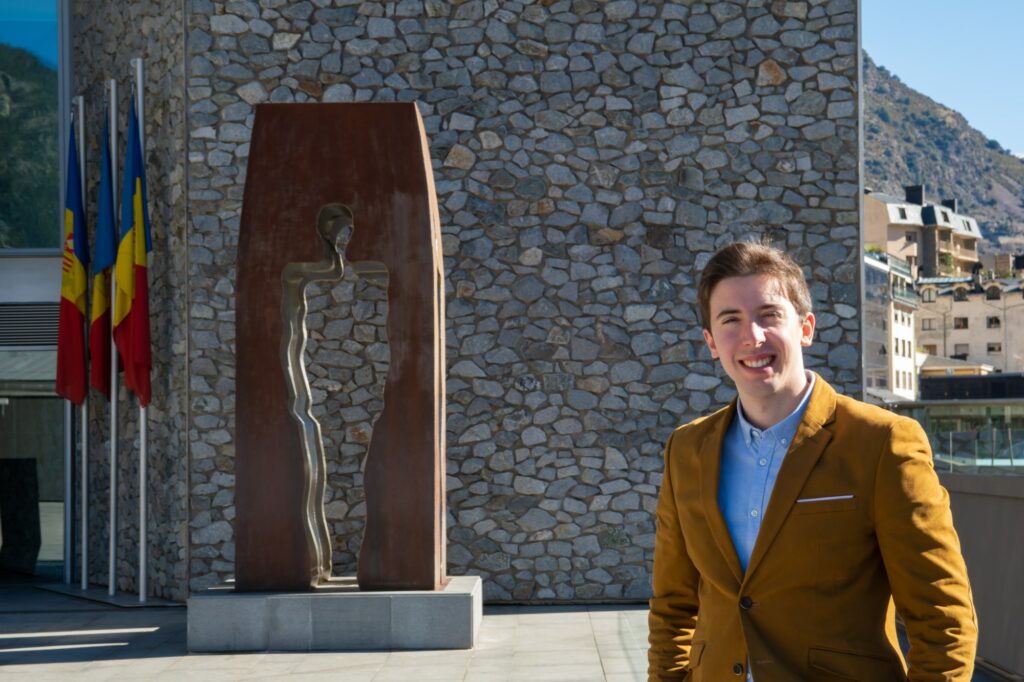According to Matteo, the situation in San Marino is very similar: “Our main Catholic party ruled for decades, and was usually not in favour of changes. There are lots of religious influences here. After all we’re named after a saint – San Marino. It’s not about the Church as an institution per se, it’s more a kind of feeling that people have, a sensibility.” Things are slowly changing in some aspects. “In November 2018, San Marino approved a civil union law that recognises same sex marriages as being equal. But regarding abortion, he added, “We have a law against it and must modify it. But it’s hard, mostly because of the power of conservative parties and our culture.”
This feeling of preservation seemed to lie deeper. “If you’re not the son of a San Marino citizen, it’s not easy to become ‘sammarinese’,” Matteo pointed out. “You must live here regularly for 25 years as a resident, or be married to one for 15.” Dual-citizenship is not allowed in Andorra, “And you know why?,” Roger asked. “Because more people would vote. It’s a way of maintaining the current balance in the advantage of conservative parties.”
“I see it even when people say they’re scared about our relationship with the EU [both San Marino and Andorra remain outside the Union, but are in talks for an association agreement], because we would lose our sovereignty and peculiarities,” Roger told me.
On another level, Roger and Matteo agreed that compared to working in big-city politics, a microstate offers more closeness with local institutions, and as a politician you’re likely to have an immediate and relevant impact. This encouraged them, especially when it came to certain forms of activism, such as gathering signatures for a petition to open a place where students could study, which was one of Matteo’s most successful initiatives before he entered politics full-time.
This also applies to voters – since in a microstate you don’t find as many filters between the electors and the elected. Roger values that small-knit nature of his homeland. “I studied in Barcelona but often went home for the weekends. Here I can make my voice heard and make a difference, be involved in unique processes like the making of a law, or being part of a particular council. In a big city it’s different, it’s harder to have these opportunities.”
As someone who’s lived abroad for long periods, I can say for certain that life in San Marino has major benefits. It’s easier in a microstate to get in touch with key people, whether you need help with anything from employment issues to healthcare. You feel like you’re part of an exclusive club.
However, though it’s a small club, you still have to answer that same question, over and over again: “Who are you the son of?”
“The last time that happened to me was last week,” Roger remembered. “For me it’s not strange, especially in formal meetings or working groups. At the same time I consider it an old-fashioned way of thinking and acting. It’s like you are judged by your past and family, and it’s not important who you really are or what you have done.”
Don’t miss the next issue of VICE Magazine later this month, dedicated to the global exploration of borders, investigating why we’ve imbued them with so much power, and what happens when those lines aren’t visible to the naked eye.
Source link : https://www.vice.com/en/article/microstate-andorra-san-marino-young-politicians-roger-carmona-matteo-ciacci/
Author :
Publish date : 2019-08-08 07:00:00
Copyright for syndicated content belongs to the linked Source.
